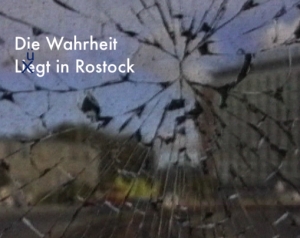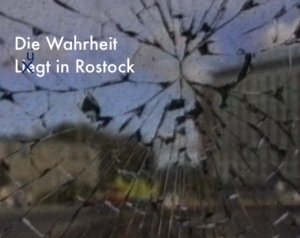Does the Truth Still Lie in Rostock?
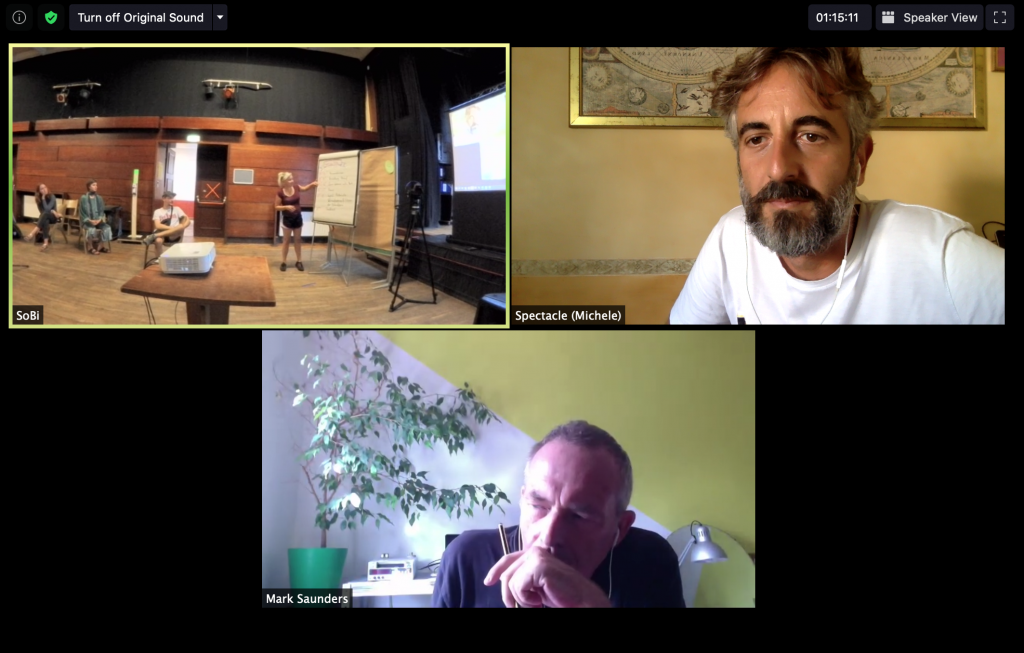
In August 2020, in collaboration with the Rostock based group Lichtenhagen im Gedächtnis , Spectacle developed and ran an archive-based two-day participatory workshop. This project is part of the run up to the 30th anniversary of the Rostock Pogrom in 1992.
The project’s events, which were held online due to the pandemic, included a public premier of a new fully German version of ‘The Truth Lies in Rostock’. The screening was followed by a Q&A with director Mark Saunders, which focused on the participatory production process through which the film was created. For more about the process or the archive footage, see the bottom of this post.
This screening also launched a unique workshop designed to connect Rostock’s past, present, and future.
The Truth Lies in Rostock
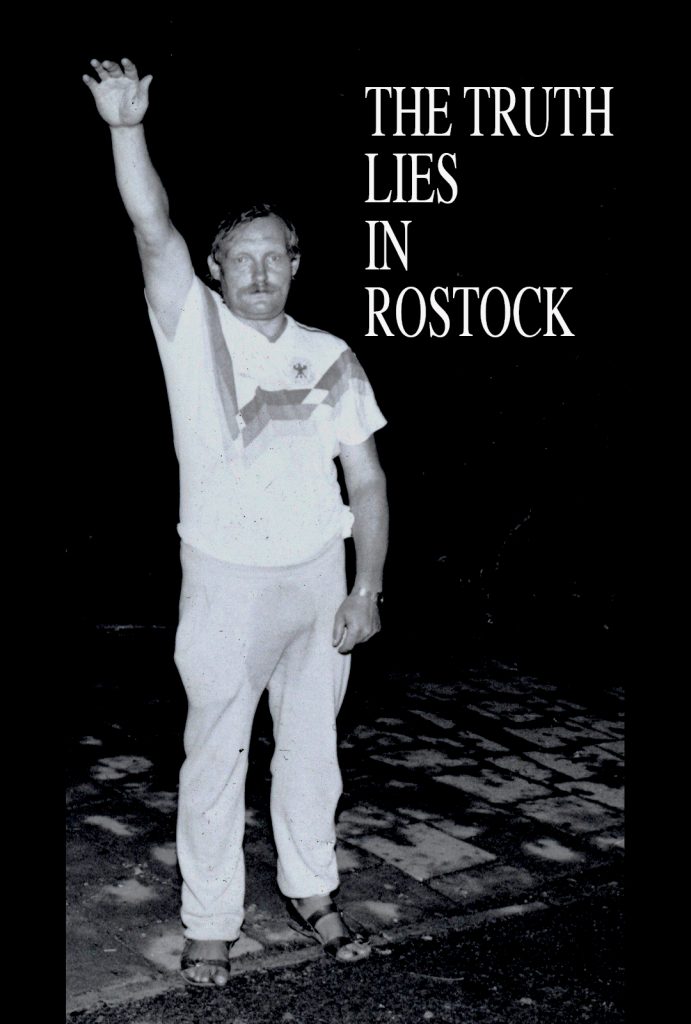
This 1993 film depicts the events which occurred in August 1992, at the Lichtenhagen estate in Rostock, in the former East Germany. Over the course of three nights, a fascist crowd assembled. The police withdrew as the mob petrol bombed a refugee centre and the home of Vietnamese guest workers while 3000 spectators stood by and clapped.
The film uses material filmed from inside the attacked houses and interviews with anti-fascists, the Vietnamese guest workers, police, bureaucrats, neo-nazis and residents. Through these perspectives, a story of political collusion and fear unfolds.
Thirty years later the question has become, how can the memory of the ‘Lichtenhagen Pogrom’ help fight new waves of fascism in Germany?
Participatory Video Workshop
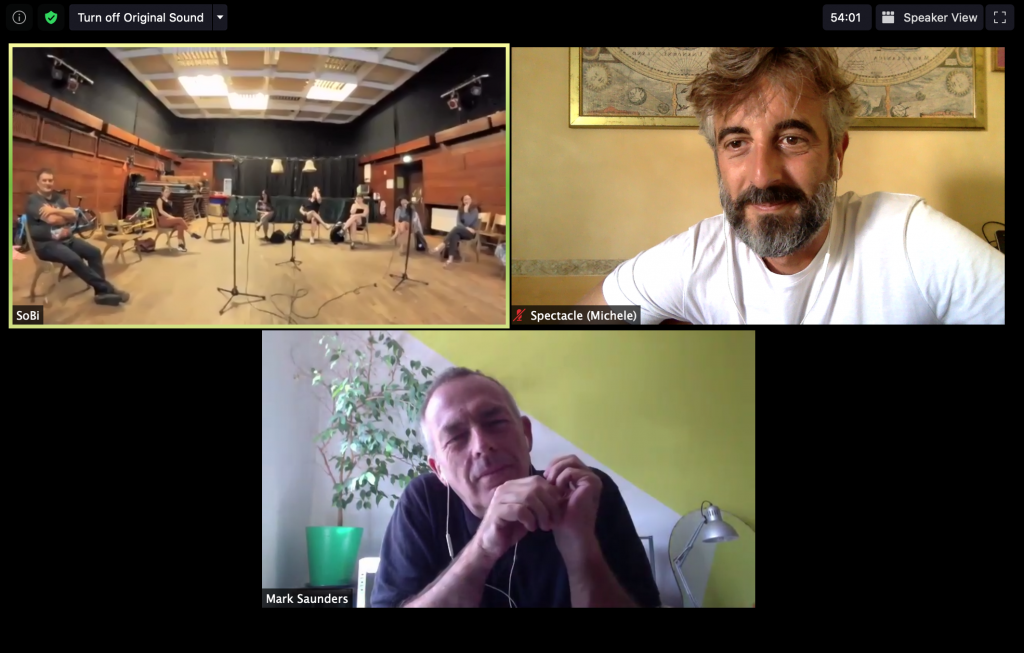
This two-day participatory video workshop offered the chance for young adults from Rostock to dig into the film’s questions about the nature of fascism, racism, and the roles and responsibilities of the city, state, and federal governments.
By working with archive footage and filming a live commemorative demonstration, the workshop was designed to bridge the past and present issues of racism and anti-racism in Rostock. The workshop’s second aim was to offer new skills in media and filmmaking to these young adults.
The workshop launched the weekend of August 20th. A group of young Rostockers were split in two groups, one working with archive footage, and one filming the live demonstration.
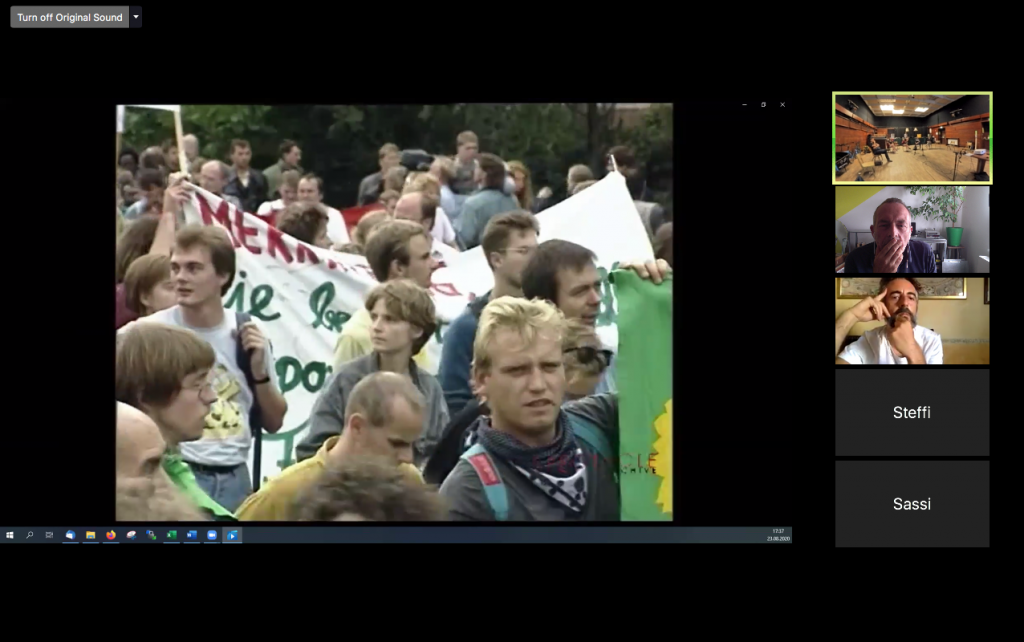
Before the workshop began, Spectacle digitized a portion of our extensive archive footage from 1992. The material selected was of the anti-nazi demonstration that followed the pogrom. This group worked with Spectacle to edit a new short film from the material.
You can see their short film here: Demonstration 1992
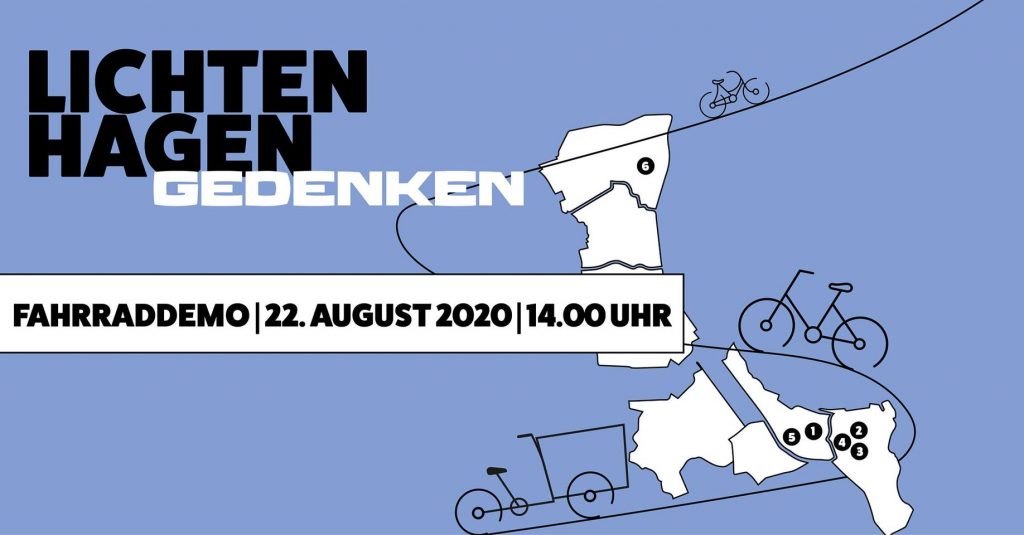
Meanwhile, the rest of the participants went as a small group to film an event which echoed the archive material – the Lichtenhagen Commemorative Bicycle Demonstration. This group of participants learned about filming techniques and edited footage from the demonstration into a short film which focused on the landmarks which have been built to commemorate the events thirty years before.
You can view their final short film here: Demonstration 2020
Read more about the project from the German perspective.
The Aims of the Project
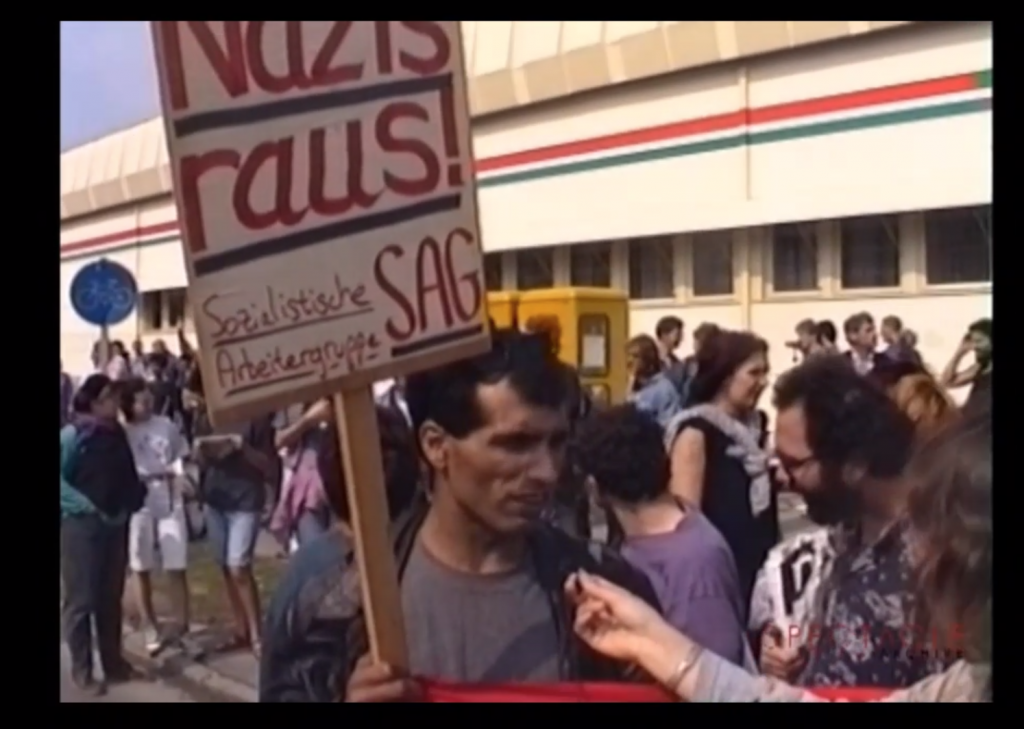
- Provide a safe space for reflection about the events in Lichtenhagen, specifically for different groupings that were involved in the events at the time. This includes, but is not limited to the Vietnamese community in Rostock, some of whom had to fear for their lives and lost their homes in the events, and Rostock residents, some of whom were appalled at the unfolding events and other who were cheering at, or maybe even participating in the attacks.
- Provide skills training in workshops, teaching participants how to use video cameras, record sound, and conduct interviews.
- Potentially encouraging dialogue between diverse groups and contributing to a more sustainable community through a process of reconciliation.
- Preserving the oral history of the 1992 events by creating Zeitzeugen (witness/bystander) documentation for future generations, through the production of a series of films including original as well as new footage. These footage shot in these workshops will be made available online as well as on DVD and can be used to educate younger generations.
The Archive
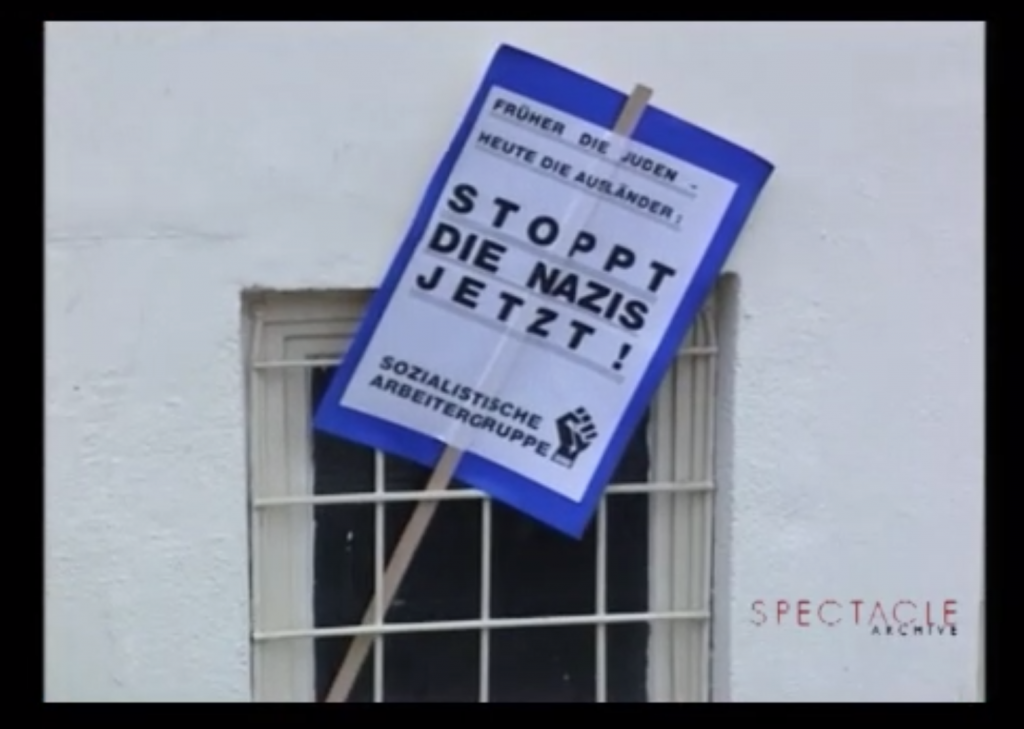
Spectacle has an extensive archive of footage from Rostock between 1991-93. The archive grew out of a programme of participatory video workshops run by Spectacle. After the unification of Germany, all the East German media outlets were taken over or replaced with Western media. Spectacle’s series of open workshops were designed to establish an independent, community-based media group in Rostock and to document the effects of unification on the city.
All participants in the workshops were beginners, with little experience in photography or filmmaking. The practical exercises concentrated on how the unification was changing the physical urban landscape. At the close of the first sessions, each participant was interviewed about their experiences as well as their hopes and fears of “Die Wende” the unification of Germany.
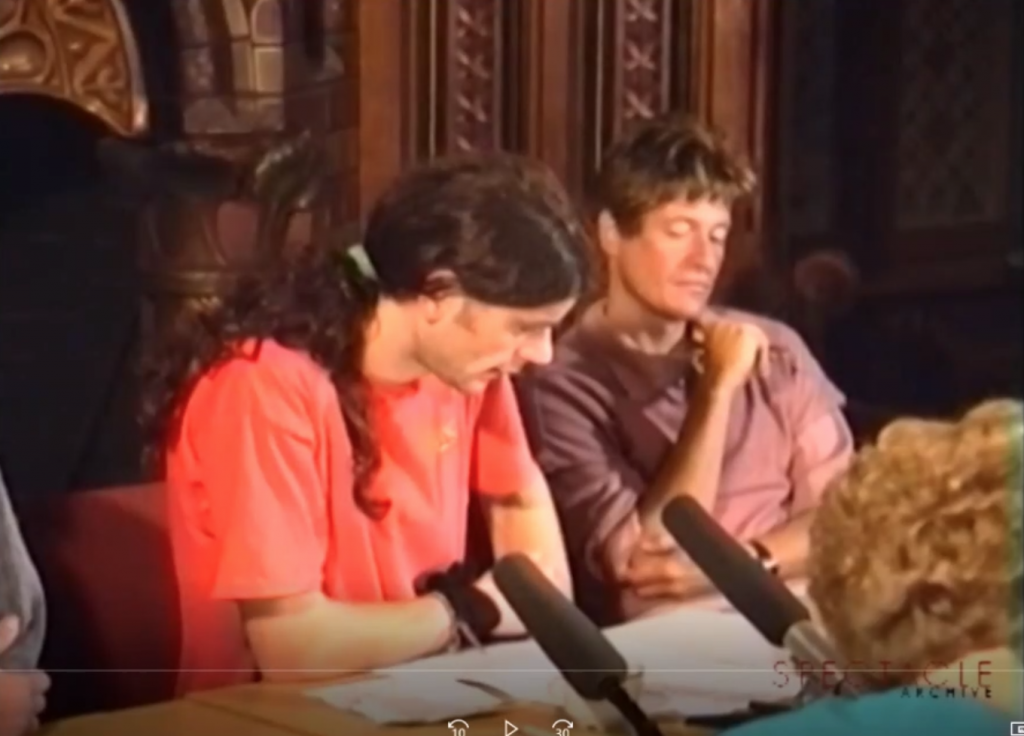
One of the objectives of the workshops was to establish a community media group to that end we formed the Jako Media Co-op. Just six months later Jako E.V. and Spectacle would rejoin to make ‘The Truth Lies in Rostock’.
The production process created over 200 hours of footage that did not appear in the final edit of the film. These scenes of daily life in 1991-1993 have become an historic archive of the city at that volatile time. The aim of the 2020 project was to re-work and revisit this archive together with a new generation of Rostockers who were not even born at the time of the pogrom.
Watch The Films
Demonstration 2020
Demonstration 1992
Read past blogs about Spectacle’s Rostock projects here.
Visit our vimeo channel to see examples of Spectacle’s past PV work.
Sign up to our Newsletter for more information about our ongoing projects.
Spectacle Homepage
Like Spectacle Documentaries on Facebook
Follow us on Twitter, Instagram, Vimeo, Youtube and Linkedin


